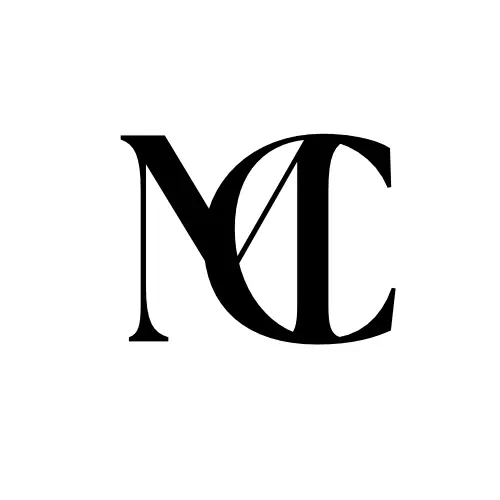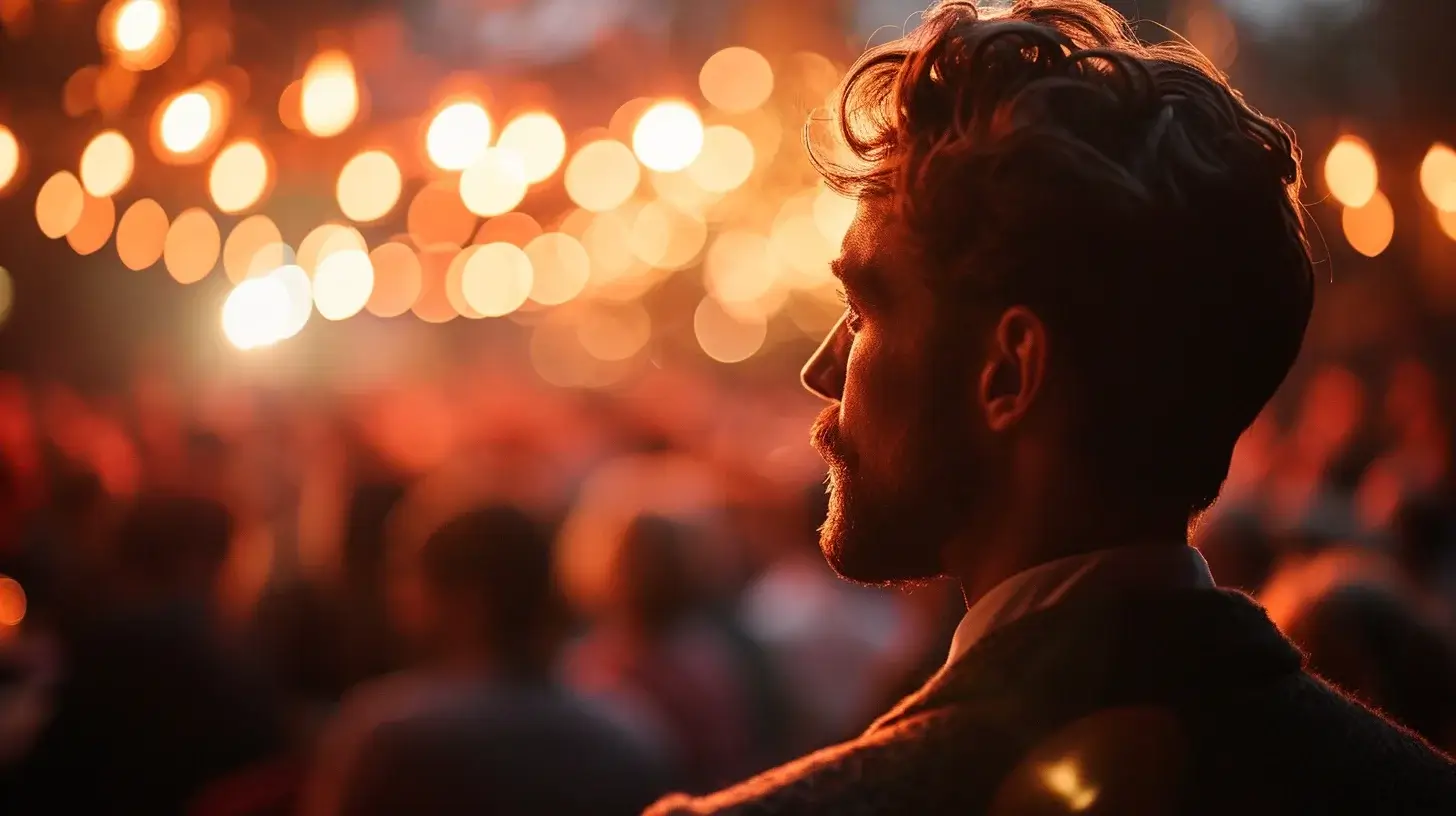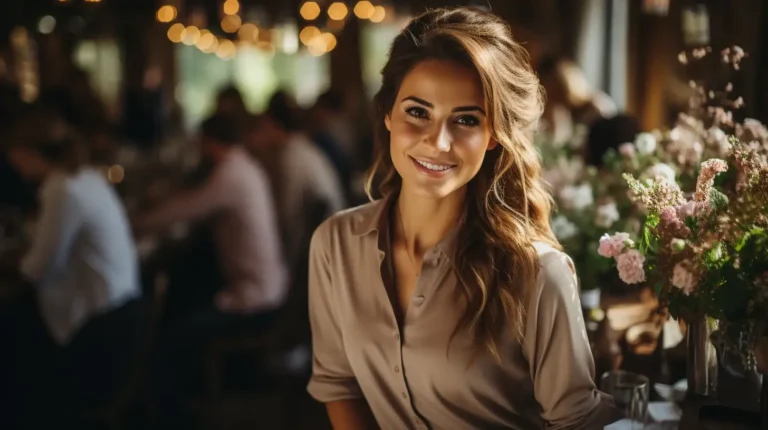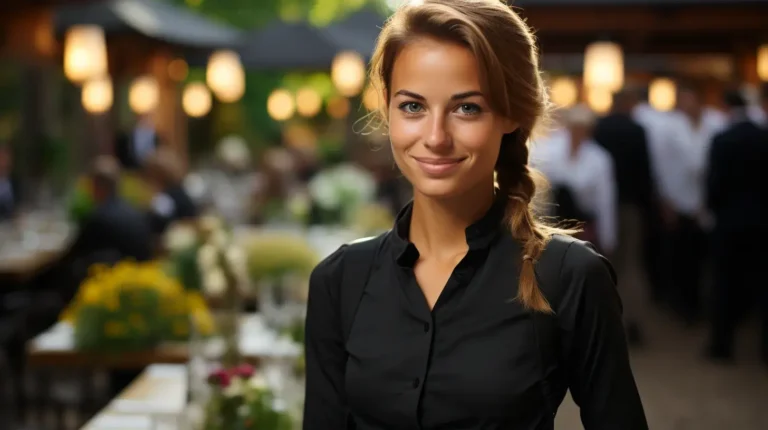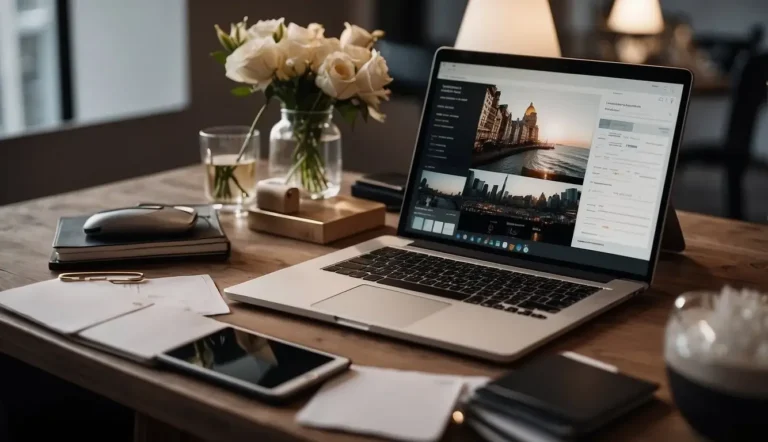As an expert in event styling and design, I’m here to help you excel as an event decorator. This profession is perfect for individuals who are fervent about transforming environments and creating memorable settings. It provides an opportunity to express your creativity and play a pivotal role in making events unforgettable.
To excel in event decorating, you’ll need a grasp of design principles, business management skills, and the ability to create captivating environments that appeal to clients. Moreover, effective marketing strategies are crucial for distinguishing yourself in this competitive field.
Key Takeaways
- A successful event decorator combines creativity with business acumen.
- Knowledge of design elements is as crucial as understanding client needs.
- Effective marketing strategies propel event decoration businesses forward.
Understanding the Event Decorating Industry
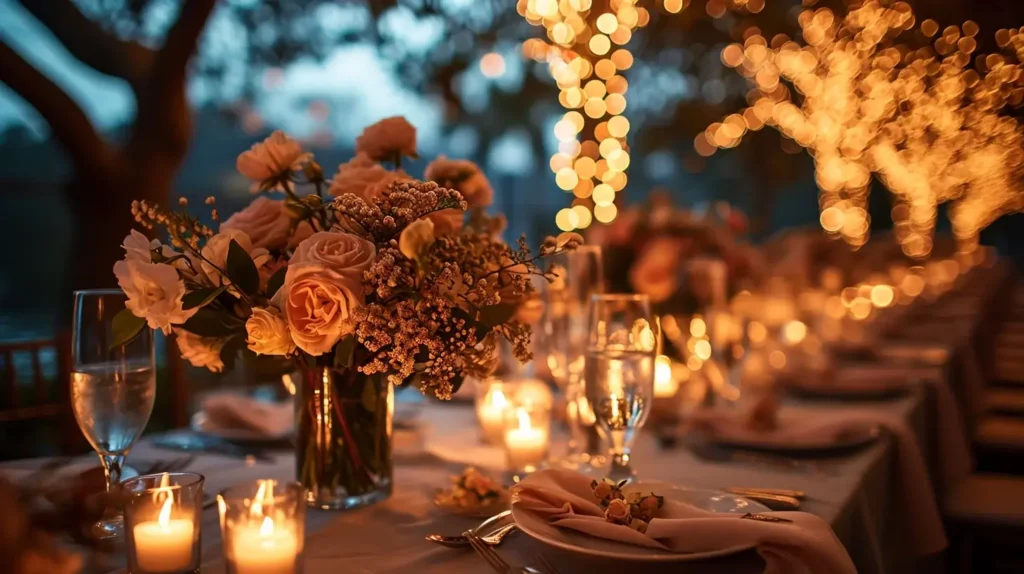
Embarking on a journey to learn how to be an event decorator means diving into a colorful and dynamic field where creativity meets logistical prowess. It’s about transforming spaces to embody the vision for various gatherings.
The Role of an Event Decorator
In the event decorating industry, you are the architect of ambiance. Working as an event decorator requires an eye for design and the ability to listen carefully to client needs and craft an environment that resonates with the event’s purpose. You’ll select specific decor elements like lighting, table settings, and floral arrangements, ensuring every detail aligns with the desired theme.
Event Types and Themes
The scope of events you may decorate spans from intimate birthday parties to grand corporate events. Each type of event demands a unique approach; a wedding would typically lean towards romantic and elegant themes, while a product launch might be more sleek and modern. Themes can be as diverse as the events, be it a rustic country affair or a futuristic gala, setting the stage for unforgettable experiences.
Current Trends in Event Decor
Staying current with trends is a must in this bustling industry. Lately, sustainable and eco-friendly decor choices are gaining traction, as are interactive installations that engage attendees. Technology integration with elements like LED displays also marks a contemporary leap in how events are decorated today. Your ability to adapt and innovate will set you apart as a decorator in this exciting field.
Getting Started in Event Decorating
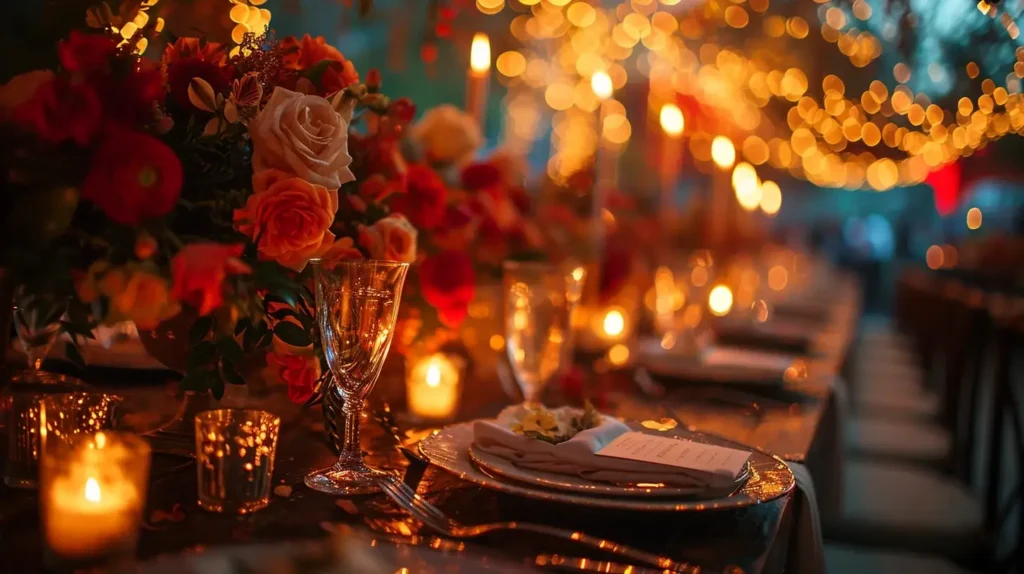
If you’re set on learning how to be an event decorator, you’re embarking on a creative and dynamic career. To ensure your success, you must hone specific skills, undergo proper training, and build a professional portfolio.
Essential Skills for Success
In the realm of event decorating, artistic ability is fundamental. Your eye for color, composition, and design will set the foundation for your work. Moreover, you should possess strong organizational skills to handle the intricate details of planning and executing events. Strong communication skills are crucial for interpreting clients’ visions and coordinating with vendors and staff.
- Artistic skills: understanding of color theory, spatial awareness, and latest design trends
- Organizational skills: ability to manage timelines, budgets, and multiple projects efficiently
- Communication skills: proficiency in conveying concepts, negotiating, and collaborative work
Education and Training
While formal education is not always required, participating in event decorating training programs can be invaluable. Enrolling in interior design or event planning courses can provide foundational knowledge relevant to event decorating. Certifications or workshops specializing in this field will equip you with the know-how and credentials clients and employers often seek.
- Relevant courses: interior design, event planning, floral design
- Certifications: recognized accreditation from industry-related programs
Creating Your Portfolio
Your portfolio is a visual testimony of your work and a vital tool to showcase your skills and artistry to potential clients or employers. Include high-quality photographs of your best work, and remember to update it regularly with new projects. It should reflect a range of styles and proficiency in various event types, from intimate gatherings to large-scale corporate events.
- Portfolio content: best work, a variety of styles, detailed descriptions
- Updates: regularly add new projects to keep it current
The Event Decoration Process
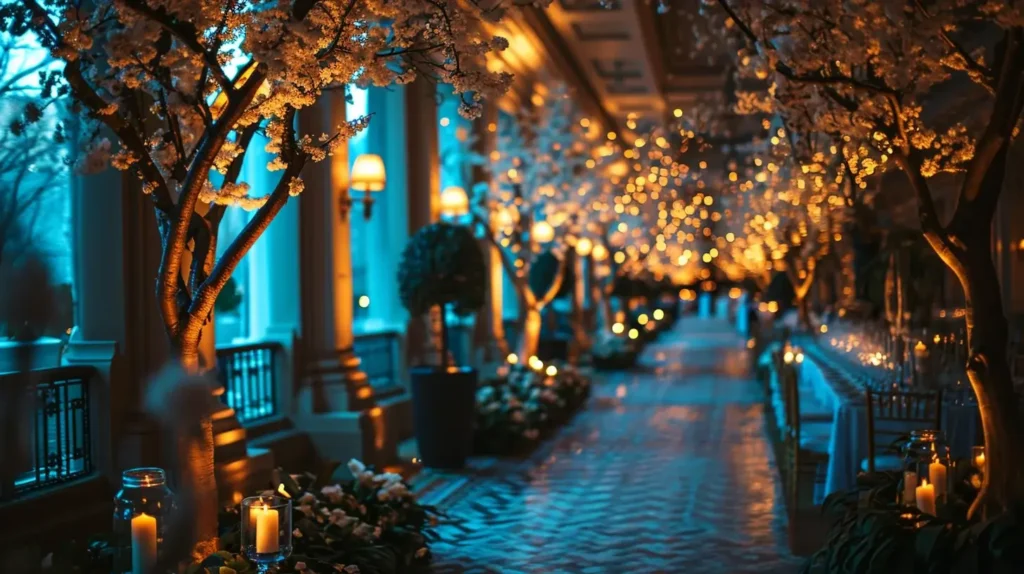
Embarking on how to be an event decorator requires understanding the meticulous coordination and creative efforts that go into transforming a venue. This process involves several key stages to bring an event’s theme to life.
Initial Consultation and Planning
Your first meeting with a client is crucial for setting the event’s tone. Here, consultation is critical in grasping the client’s vision and objectives. It’s important to ask detailed questions about their preferences and discuss planning specifics such as themes, color palettes, and budget.
Design and Decor Planning
Once the initial groundwork is laid, you’ll move forward with the design elements. This step often includes creating mood boards, selecting appropriate decor, and drafting layout plans to captivate the intended atmosphere of the event.
Vendor and Supplier Coordination
In this phase, you’ll interact with vendors and suppliers, ensuring that all decor materials and services align with the client’s vision. You’ll also negotiate contracts, secure rental items, and confirm delivery dates.
Setting Up and Dismantling Decor
Finally, the physical process of setting up decor will commence on-site. As an event decorator, you’ll oversee the arrangement of elements to ensure they reflect the established plans. Post-event, coordinating the dismantling of decor is also within your purview, ensuring the venue is returned to its original state.
Design Elements and Principles
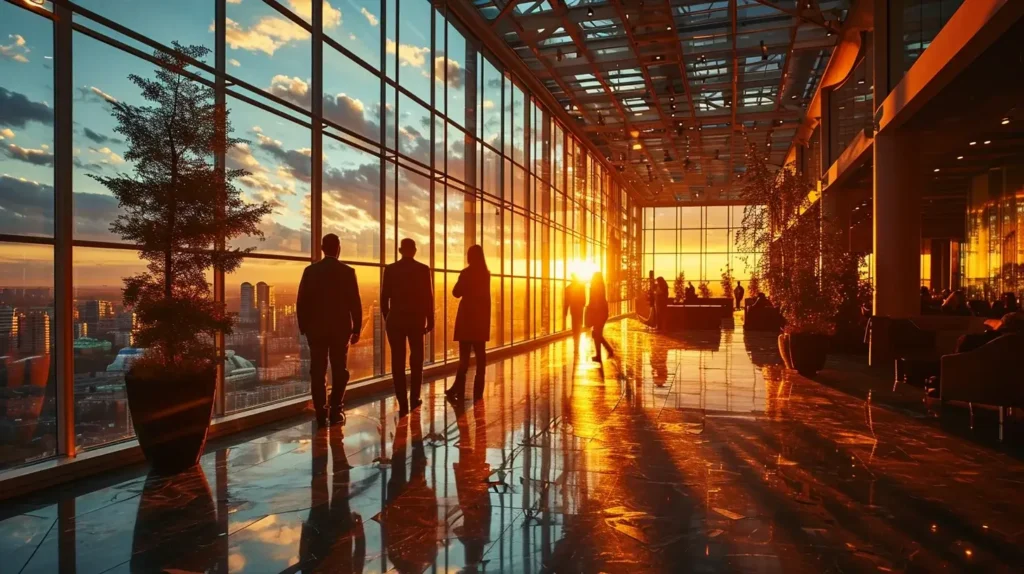
Mastering design elements and principles is pivotal to becoming an event decorator. This knowledge enables you to create cohesive and visually appealing environments for all types of events.
Color Theory and Aesthetics
Understanding color theory is essential when selecting your palette. Consider the psychological effects colors have—warm colors can evoke feelings of warmth and excitement, while cool colors might create a calm and serene atmosphere. Use a color wheel to find complementary shades that add cohesiveness to your decor elements.
Selecting Decor Elements
Your selection of decor elements should align with the event’s theme and the venue’s existing aesthetics. Balancing the textures, sizes, and shapes of these elements—from table centerpieces to wall hangings—ensures that no single part of your decor overwhelms the space or detracts from the overall design.
Lighting and Atmosphere
Lighting can make or break an event’s atmosphere. Use a mix of ambient, task, and accent lighting to enhance the space and highlight key decor. Soft lighting can create an intimate setting, while dynamic, colored lights can add energy to a room. Remember, the lighting should complement your color scheme and selected decor elements to contribute to the desired aesthetic experience.
Managing Your Event Decorating Business
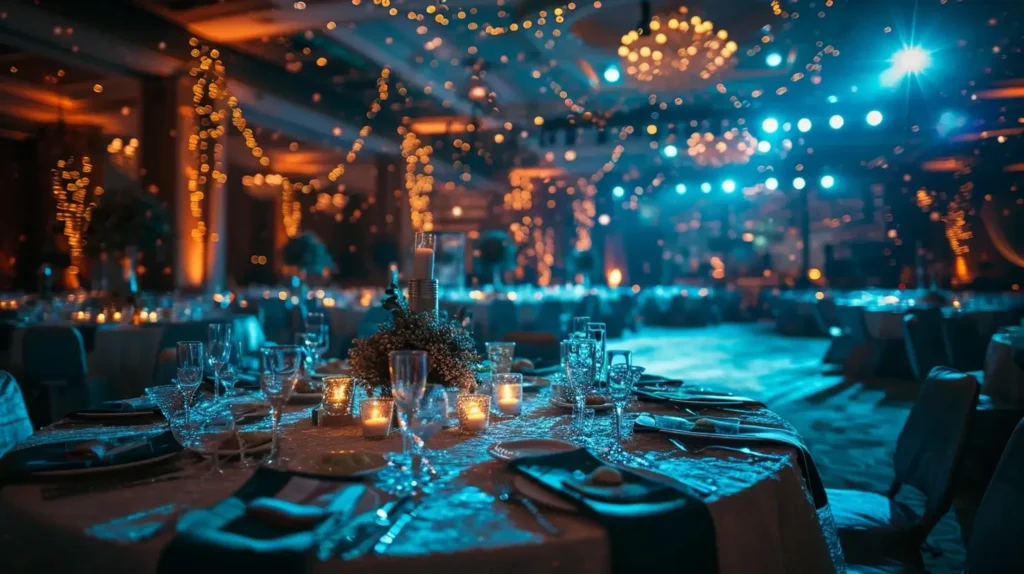
Starting your own decorating business is an exciting venture. As you learn how to be an event decorator, understanding how to manage the business side of things is just as vital as the creative elements.
Budgeting and Financial Management
Effective budget management is crucial in any decorating business to ensure your income aligns with business expenditures. Track your expenses meticulously, categorizing them to give you a clear picture of where your money goes. Budgeting software is used to streamline this process, allocating funds for supplies, labor, marketing, and emergency funds. Additionally, regularly review your pricing strategy to ensure it reflects the quality of your services and allows you to pay yourself a competitive salary.
Time Management and Organization
Solid time management and organization skills are essential for success in the decorating business. Time is often one of your most limited resources, and learning to manage it well can significantly affect your business’s efficiency and profitability. Create checklists and workflows for each event to ensure nothing gets missed, and utilize scheduling tools to keep track of appointments, installations, and teardowns. Keep detailed records of vendors, timelines, and deadlines to keep everything running smoothly.
Building Client Relationships
Establishing and nurturing client relationships is the cornerstone of a thriving event decorating business. Clients are looking for someone who delivers aesthetically pleasing results and provides excellent customer service. Communication is key; maintain regular contact with clients throughout the event planning process. Seek feedback post-event to improve your services and encourage loyal clients to refer others to your business.
Remember, managing your business well is just as much a part of learning how to be an event decorator as mastering the art of decoration itself.
Beyond Decorations: Creating Experience
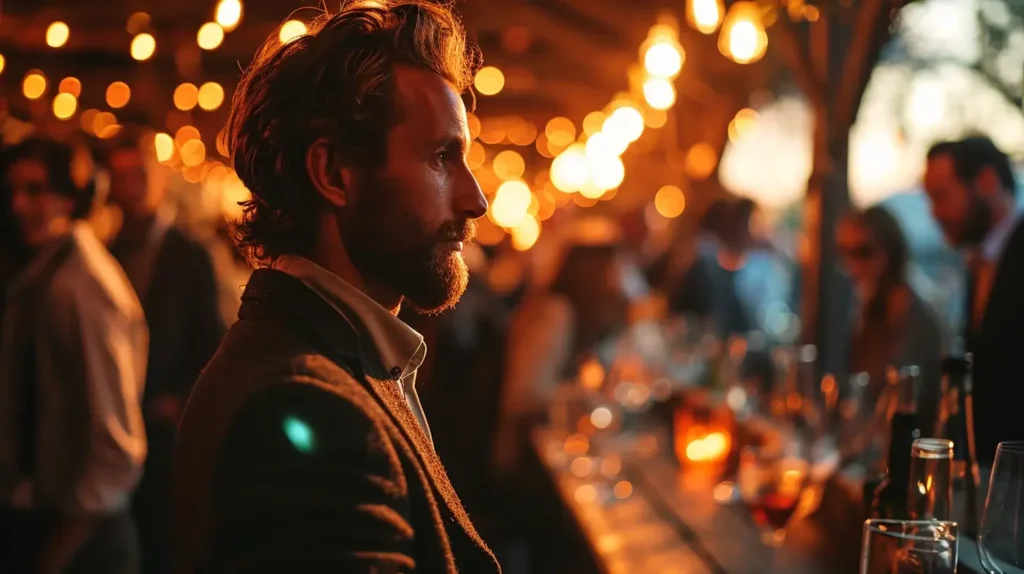
As you learn to be an event decorator, remember that it’s about more than selecting pretty adornments; it’s about crafting unforgettable experiences that resonate with guests.
Floral Arrangements and Centerpieces
Flowers are the heart of many decorative efforts, providing both color and fragrance to an event. When considering floral arrangements, consider the event’s theme and how different flowers can enhance the mood. Orchids can add an exotic touch, while roses bring a classic elegance. Centerpieces should complement the overall decor and be conversation starters that reflect the event’s purpose and personality.
Transforming Spaces
The skill of an event decorator shines in the ability to transform a space. From a bare room to a themed wonderland, every corner should tell a part of the event’s story. Utilize drapes, lighting, and thematic props to metamorphose ordinary venues into bespoke worlds. Such transformations go beyond aesthetics by altering how a space feels, creating a comprehensive experience.
Personalized and Memorable Events
To make an event truly memorable, personalize the details. Customized place settings, thoughtful favors, or interactive installations can all contribute to an experience that guests will remember fondly. In personalized events, your creativity should align with the host’s vision, incorporating meaningful elements to them and their guests, thus rendering the event a distinct and memorable celebration.
Navigating Professional Development
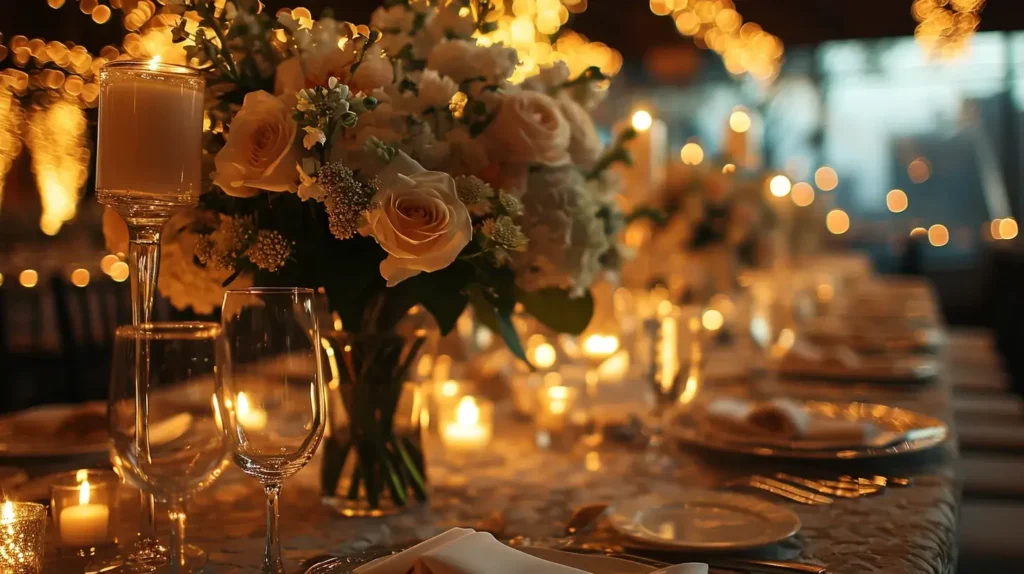
Becoming skilled in how to be an event decorator involves not just a flair for design but a commitment to your professional growth. Here’s how you can sharpen your skills and ensure your services remain competitive and in demand.
Certifications and Licenses
Earning certifications is a foundational step in building credibility. Certifications such as the Certified Event Decorator designation can help you understand industry standards and gain recognition. Securing the right licenses also demonstrates to clients and employers that you are a serious professional adhering to local business regulations.
Continued Education and Advancement
Don’t let your skills become outdated. Engage in continued education to stay abreast of the latest trends and techniques. This could mean attending workshops, enrolling in advanced courses, or getting additional certifications that can help you advance your career further.
Networking and Mentorship
Building a robust professional network can open doors to new opportunities. Attend industry events, join professional associations, and seek out a mentor who can guide you through the complexities of the field. Relationships with veteran decorators can be invaluable as they can offer tailored advice and might even share their strategies for success with you.
Challenges and Solutions in Event Decorating
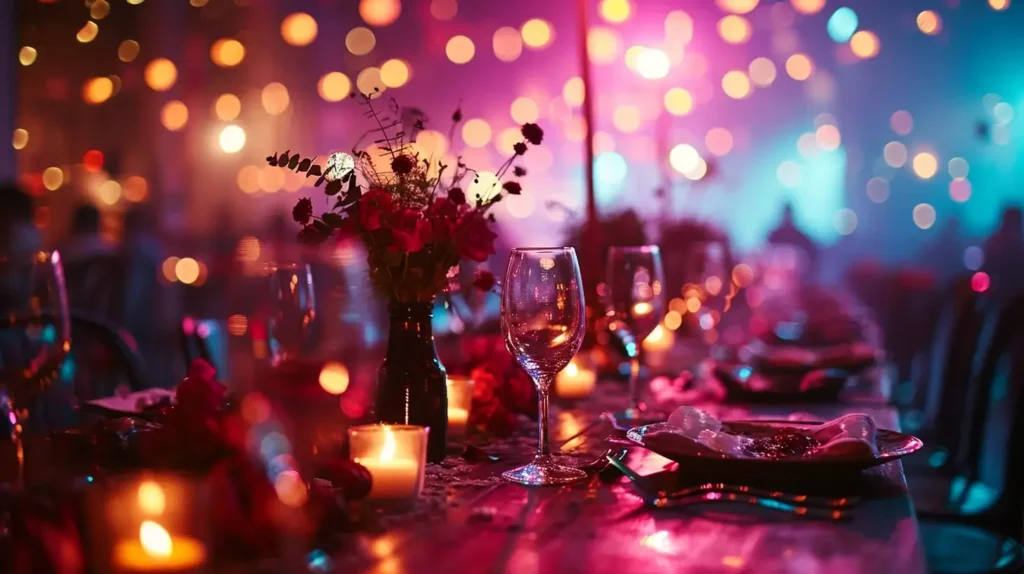
When learning how to be an event decorator, you’ll find that creativity is only part of the job. Mastering the art of problem-solving and adaptability is crucial for success.
Problem-Solving on the Job
As an event decorator, you will encounter various problems that require inventive solutions. Whether it’s a mismatch in the color palette or a venue that doesn’t fit the envisioned theme, your ability to resolve issues efficiently is key. For example, imagine the floral arrangements you ordered aren’t available at the last minute; you’ll need to quickly find an alternative that still matches the event’s aesthetic.
- Example Challenge: Decor doesn’t fit the space as intended.
- Solution: Modify the layout on-the-fly or use accents to adapt the existing theme to the space.
Dealing with Changes and Last-Minute Updates
Adjusting to last-minute changes is a common challenge. You might need to tweak the schedule and timeline due to a client’s change of heart or unforeseen logistics issues.
- Manage Expectations: Clearly communicate what can and cannot be done within the remaining time to avoid overcommitting.
- Stay Organized: Keep a detailed checklist and a flexible plan that allows for adjustments without affecting the overall setup.
Sustainability and Eco-Friendly Practices
Sustainability is becoming increasingly important in event decorating. Implementing eco-friendly practices helps the environment and can be a selling point for your services.
- Eco-friendly Materials: Choose decorations made from biodegradable or recyclable materials.
- Minimize Waste: Design decor with reuse in mind, and consider renting items instead of buying them whenever possible.
By facing these challenges head-on and developing reliable solutions, you’ll enhance your reputation as an adaptable and skilled event decorator.
Marketing and Expanding Your Business
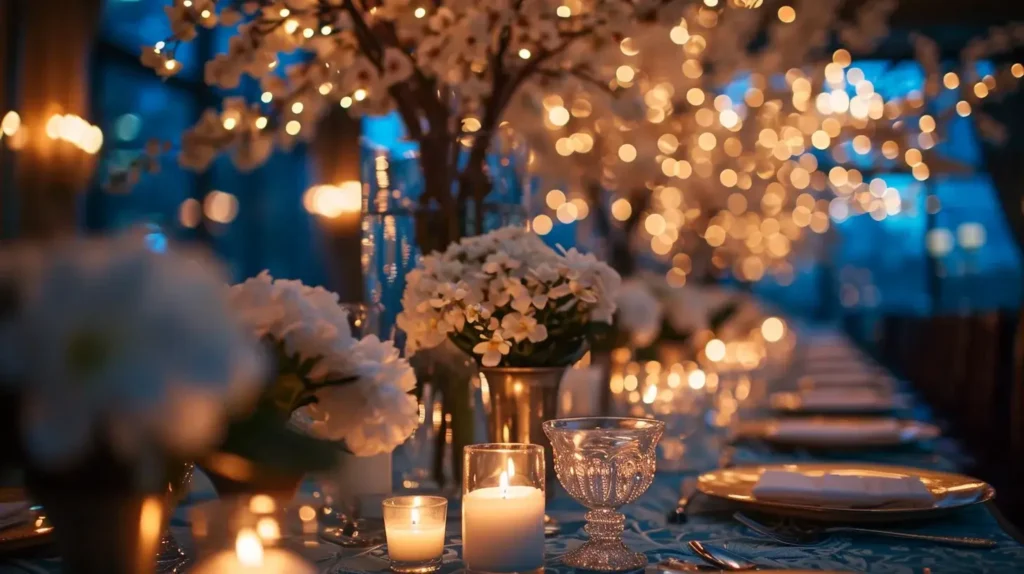
As you master the art of event decorating, it’s crucial to also focus on scaling your business and reaching more clients. Effective marketing and strategic growth are the cornerstones of this expansion.
Online Presence and Social Media
Establishing a strong online presence is essential to ensuring your event decorating business thrives. Create an engaging website with a gallery of your work and testimonials, which acts as your business’s digital storefront. Utilize platforms like Instagram and Pinterest, as these are visual channels perfectly suited for showcasing your event decor services and connecting with potential clients.
- Website Tips:
- Include a portfolio of past events
- Feature client reviews and case studies
- Social Media Strategies:
- Post regularly with high-quality images of your events
- Engage with followers and use industry-relevant hashtags
Strategic Partnerships
Forging strategic partnerships can be a game-changer. Connect with vendors, venues, and other event professionals who can refer clients to you or offer complementary services to your own. Consider creating exclusive package deals for clients that combine your event decor with partners’ services.
- Partnership Ideas:
- Collaborate with event planners to offer full-service packages
- Network with venues as a preferred event decorator
Event Decor Services Expansion
Broadening your range of services could open up new avenues for your business. Whether it’s incorporating thematic decorations for various holidays or providing eco-friendly decoration options, diversifying your offerings can set you apart. Continuously update your business plan to include these updated services and explore new market segments.
- Service Expansion Ideas:
- Add holiday-themed decor services
- Offer eco-friendly and sustainable decor options
Our Opinion on How to Be an Event Decorator
Venturing into the world of event decorating can be as thrilling as it is challenging. If you’re keen on learning how to be an event decorator, you’re in for a dynamic career path combining creativity and practical planning skills.
Firstly, it’s crucial to have a strong foundation in design principles. Understanding color theory, spatial awareness, and thematic coordination sets the stage for creating visually stunning arrangements. Pursuing a formal education or taking specialized courses, like the one offered by QC Event School, can give you a competitive edge.
Here’s a quick checklist to get you started:
- Obtain proper training: Enhance your skills through courses or workshops.
- Build a portfolio: Showcase your work to attract potential clients.
- Understand your niche: Specialize in weddings, corporate events, or social gatherings.
- Network: Collaborate with event planners, vendors, and photographers.
- Manage time efficiently: Learn how to handle tight deadlines, as detailed by Career Sidekick.
Remember, hands-on experience is invaluable. Start by volunteering your decorating services for local events to gain real-world knowledge. As you progress, focus on developing a keen eye for detail and an ability to adapt to various client needs and event types. Your approach to design must evolve with trends and individual client tastes, making each event a unique challenge and opportunity to showcase your talents.
FAQ on How to Be an Event Decorator
What Does an Event Decorator Do?
An event decorator plans, designs, and sets up the decorative elements for events like weddings, parties, corporate functions, and other celebrations. This involves selecting themes, colors, and decor items that align with the client’s vision.
What Skills Are Needed to Be an Event Decorator?
Key skills include a strong sense of design and color, creativity, attention to detail, good communication and interpersonal skills, and the ability to work within various budgets. Organizational and problem-solving skills are also important.
Is Formal Education Required to Become an Event Decorator?
While not strictly necessary, courses in interior design, event planning, or floral design can be beneficial. Some decorators have degrees in related fields, but practical experience and a strong portfolio are often more important.
If you enjoyed reading about How to Be an Event Decorator, check out our other articles:
- Event Planning 101: Mastering the Basics for Memorable Events 2024
- Business Event Organization Tips 2024: A Strong Guide for Success
- How to Become a Wedding Planner: Your Step-by-Step Guide
- How to Become an Event Planner: Your Guide to a Successful Career Path
- How to Make an Event Unforgettable: Key Tips for Success
Feel free to also check out our other Articles from the category “Business & Networking“ and don’t forget to follow us on Pinterest.
